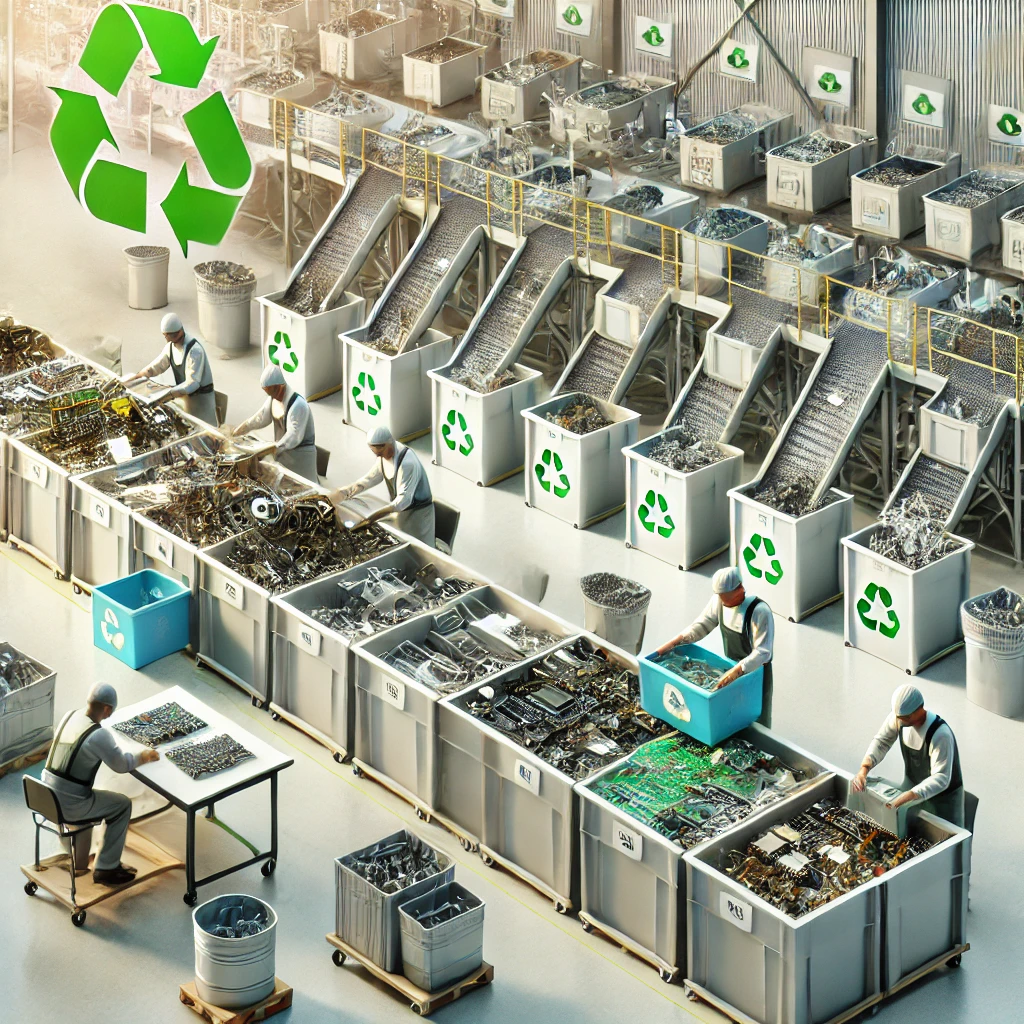The Importance of Using Certified Processors in IT Asset Disposition

IT asset disposition (ITAD) is a critical aspect of any company’s IT department, and it deserves proactive planning and funding in your IT budget. Unfortunately, many companies only consider ITAD when old assets need to be disposed of, leading to avoidable mistakes that can cost you financially and damage your brand. Some of those risks include environmental contamination from illegal disposal or the risk of old tech being shipped overseas to informal recycling centers. If your assets are discovered there, it could cause serious damage to your brand reputation, not to mention possible legal fees, fines, and litigation. This can all be avoided by using reputable ITAD providers who use local certified processors to ensure a closed-loop process. Let’s examine this further.
Embracing a Circular Economy by Prioritizing Reuse
First, it should be noted that recycling is the second-to-last resort after landfilling. The best course of action to promote a circular economy, reduce carbon emissions, and support your company’s sustainability goals is to retire your old technology while it can still be refurbished and resold. This prevents them from ending up in landfills or recycling streams while also providing a cash-positive solution when assets are resold, and value can be recovered to put back into your IT budget.
Use Only Compliant Recycling
When technology becomes too old or cannot be refurbished, and recycling becomes necessary, ensure that your ITAD providers only use R2v3 or e-stewards certified processors. This ensures that all e-waste is responsibly recycled in certified US facilities, preventing old tech from being shipped overseas in violation of the Basel Convention, which prevents the international shipment of hazardous wastes. Ideally, you should be able to access certificates of compliant recycling for all of your old tech through your ITAD provider’s online portal.
Avoiding Unethical Practices
Using vetted local certified processors avoids the risks of illegal recycling or landfilling. Be cautious of providers who are not clear about their recycling certifications or, worse, state that they are not liable for what happens to your assets once they are sent to their third-party providers. The companies that buy IT assets are always the ones liable for where they end up. The Resource Conservation and Recovery Act holds companies financially liable if their e-waste is found to be causing environmental contamination. If an ITAD provider tries to say they are not liable for what happens when they are sent for recycling, that suggests that they do not adhere to ethical guidelines.
For instance, some ITAD providers, especially manufacturers who offer ITAD services, have loopholes in their e-waste policies that allow them to ship e-waste as ‘donations’ or ‘second-hand goods.’ While that makes it sound ethical and environmentally responsible, the reality is that the loophole is often used to ship IT to informal, unregulated recycling centers overseas, posing serious environmental and human health risks. In those facilities, workers are rarely trained in safe procedures, seldom provided with Personal Protective Equipment (PPE), and environmental regulations are lax or non-existent. Often, children and pregnant women even work in these facilities, exposed to countless toxins.

Image by Muntaka Chasant, CC BY-SA 4.0, showing informal e-waste recycling in Ghana with the open burning of electrical wires to extract valuable metals.
Avoiding Landfilling
E-waste is quickly becoming strictly controlled or banned in landfills throughout the USA. This is because while e-waste makes up about 2% of the total US solid waste stream, it contains a very long list of hazardous compounds. To name just a few of those toxins, they often contain heavy metals like lead, cadmium, and mercury, but also persistent organic pollutants like flame retardants, PFAS, and chlorofluorocarbons (CFCs). When these toxins leach into the soil, water, and air, they pose severe risks to human health and the environment.
Using processors with responsible recycling certification is critical to ensure that they extract all necessary materials and don’t just focus on extracting the precious metals like gold or platinum that are the most profitable. They will also know exactly how to handle the toxic substances in an environmentally responsible manner. Finally, some ITAD providers are ahead of the curve, already having zero landfill policies rather than some vague date in the future.
Solution: ICT’s Mission Reuse
ICT’s Mission Reuse policy focuses on refurbishing and reusing assets, with about 90% of the assets they receive being remarketed. This approach not only extracts value for your company but also advances a circular economy. Using their vetted team of 22 R2-certified nationwide processors, they have the expertise to know where to send your assets to ensure maximum reusability and maximum value recovery. Some processors specialize in computers, others in Apple products, mobile devices, or data center devices. Sending them to the right team of professionals ensures that whatever can possibly be refurbished and resold will be. This leaves only about 10% of assets being recycled, and ICT’s vetted recyclers ensure that non-reusable assets are processed within the USA in compliance with the most stringent environmental standards. Their zero-landfill policy also ensures that none of your retired assets will end up in landfills.
Final Thoughts
Choosing the right ITAD provider is essential for ensuring strict adherence to environmental and ethical guidelines when recycling your retired IT assets. A reputable ITAD provider will prioritize reuse, use only vetted processors and certified local recyclers so your assets don’t end up in the wrong hands, and have a zero-landfill policy to ensure your assets aren’t illegally dumped. This is a win-win for your company because when you can reuse your assets, you can recover value and put cash back into your IT budget.
Find Out How We Can Help
If you are an enterprise, government, or institution looking for ITAD solutions or have additional questions, please contact us at ICT. Also, check out our white paper on Recycling Policies, comparing the services provided by 8 major ITAD providers.
Selected References
Basel Convention. (2011). Www.basel.int. https://www.basel.int/TheConvention/Overview/tabid/1271/Default.aspx
ERCC. (n.d). Map of States With [E-waste] Legislation. Www.ecycleclearinghouse.org. https://www.ecycleclearinghouse.org/contentpage.aspx?pageid=10#:~:text=There are currently 25 states
SERI - Sustainable Electronics Recycling International. (2013). Sustainableelectronics.org. https://sustainableelectronics.org/
UNITAR. (2024). Global e-Waste Monitor 2024: Electronic Waste Rising Five Times Faster than Documented E-waste Recycling. https://unitar.org/about/news-stories/press/global-e-waste-monitor-2024-electronic-waste-rising-five-times-faster-documented-e-waste-recycling
US EPA. (2018, August 15). Summary of the Resource Conservation and Recovery Act | US EPA. US EPA. https://www.epa.gov/laws-regulations/summary-resource-conservation-and-recovery-act
©ICT Inc. 2024-2027. All rights reserved. Unauthorized reproduction, distribution, or use of this article, in whole or in part, without proper attribution to ICT Inc. is strictly prohibited.
